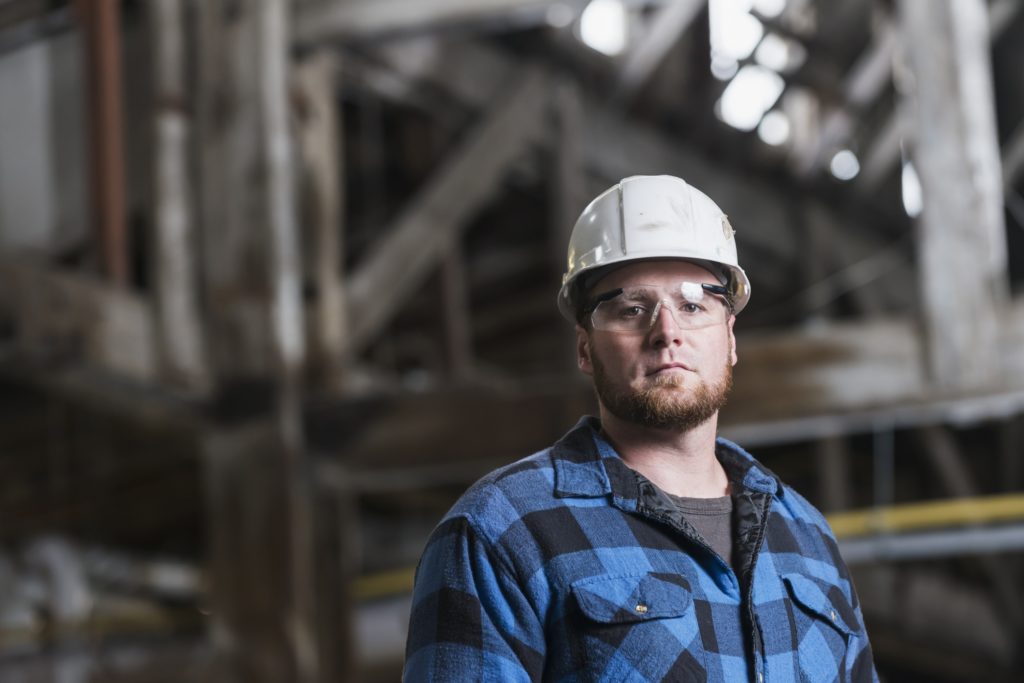Over seven million people work in the construction industry in the United States. A significant percentage of these people use alcohol. There are several reasons that alcohol use is common among construction workers, and many negative consequences can result from drinking on the job. Fortunately, many alcoholism addiction treatment programs provide customized care to individuals in the construction industry who struggle with alcohol.
How Many Construction Workers Struggle With Alcohol Use?
A higher percentage of construction workers engage in heavy drinking than workers in almost any other industry. In a cross-industry study by the Substance Abuse and Mental Health Services Administration (SAMHSA), 16.5 percent of construction workers reported that they drink heavily. This was found to be true regardless of age and gender. Heavy drinking (defined here as five or more drinks on one occasion several times per month) is often indicative of a substance use disorder. When someone is unable to control their drinking—especially to the extent that it affects their work—they are addicted to alcohol and should seek help. [middle-callout]
Why Construction Workers Use Alcohol
Each person has a unique experience with addiction and a different reason for alcohol use. That said, many individuals working in the same field have similar struggles that may cause them to drink. Some construction workers, especially those who are self-employed, have an inconsistent workload. They may be overwhelmed by jobs in the summer and have nothing to do in the winter. The stress in either season may lead them to alcohol. During busy times, construction workers often put in long hours of repetitive work. This can be boring and exhausting. Alcohol maybe a way for them to relax after a long day, or it may add some excitement to their free time. The social aspect of construction work may also contribute to alcohol use. Coworkers often go out for a drink after work, which can become a habit that some people take too far. Construction labor is difficult. Injuries happen. Some workers use alcohol to relieve physical pain so they can keep working. It’s easier to get than opioids but stronger than over-the-counter painkillers.
Dangers Of Drinking On The Job
Drinking alcohol on a construction site is a bad idea. Construction involves heavy lifting and precision. Intoxication makes both of these things difficult. Alcohol use and addiction can lead to many negative consequences in the construction industry, such as:
- more accidents, injuries, or deaths
- lost productivity
- poor workmanship
- low morale
- employee absenteeism
Drinking heavily causes damage to the body over time. It weakens the immune system, which means construction workers may take more sick days due to illness. Alcoholism can also harm vital organs like the heart, lungs, and liver. Serious health problems that require hospitalization certainly don’t benefit workers in the construction industry or their employers.
Preventing Alcoholism Among Construction Workers
Substance use is such an issue in the construction field that the Construction Coalition for a Drug- and Alcohol-Free Workplace was formed. This organization consists of several trade associations that support people who struggle with alcoholism and drug misuse. Two goals of these associations are to bring awareness to the dangers of substance use in the construction industry and to create policies that reduce drug and alcohol use among workers. They aim to decrease workplace accidents by enforcing a substance-free workplace.
Can A Construction Worker Keep Their Job After Alcohol Rehab?
Some construction workers hesitate to get treatment for alcoholism because they are afraid they’ll lose their jobs. But that’s not always true. Construction companies that are drug-free workplaces may offer employee assistance programs (EAPs) that help people with alcohol use or connect them to treatment. Large companies with over 50 employees may provide job protection through the Family Medical Leave Act (FMLA). This act allows employees to take up to 12 weeks of unpaid time off without penalty to attend addiction treatment. Some insurance plans may cover alcohol rehab as well as partial wages during a person’s time away from work. Employers who encourage their employees to enroll in addiction treatment may save money in the long run. Employees who are afraid to confess their addiction may perform their jobs poorly, which can be costly to the company. Firing people and training new employees also costs money. Besides the financial sense of allowing a construction worker to keep their job after rehab, having faith in individuals and caring about their wellbeing builds morale among all employees.
Alcohol Addiction Treatment For Construction Workers
The most effective alcohol addiction treatment for construction workers includes personalized care. People who struggle with alcohol use have different issues from people who use other drugs, and individuals in the construction industry have unique concerns as well. Most alcohol rehab programs for construction workers provide therapies that deal with these concerns. Cognitive-behavioral therapy helps them determine why they use alcohol and how it affects their jobs and lives overall. The therapist helps the individual alter their thought patterns and teaches them new ways to cope without alcohol. Construction workers may also engage in various evidence-based therapies that address physical, mental, and spiritual health. If a person uses alcohol because of stress or a lack of fulfillment in life, they need to find other ways to deal with those things. Exercise, meditation, music, and art therapy provide alternative stress relief techniques and the opportunity for creative expression. Some people respond better to certain methods than others, which is why individualized care is so important. At Vertava Health, we offer personalized alcohol rehab programs for construction workers. To learn more about alcoholism and treatment for construction workers, reach out to one of our specialists today.


